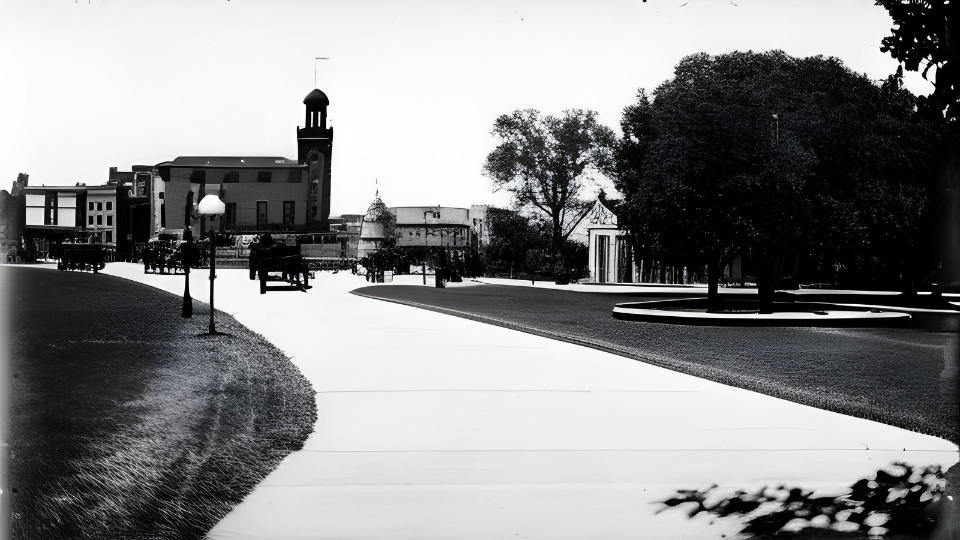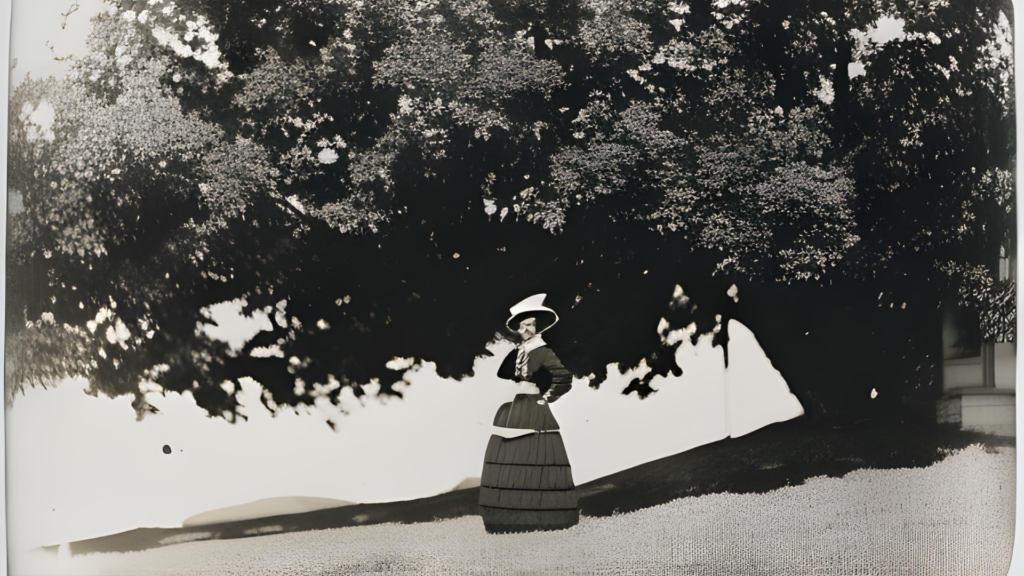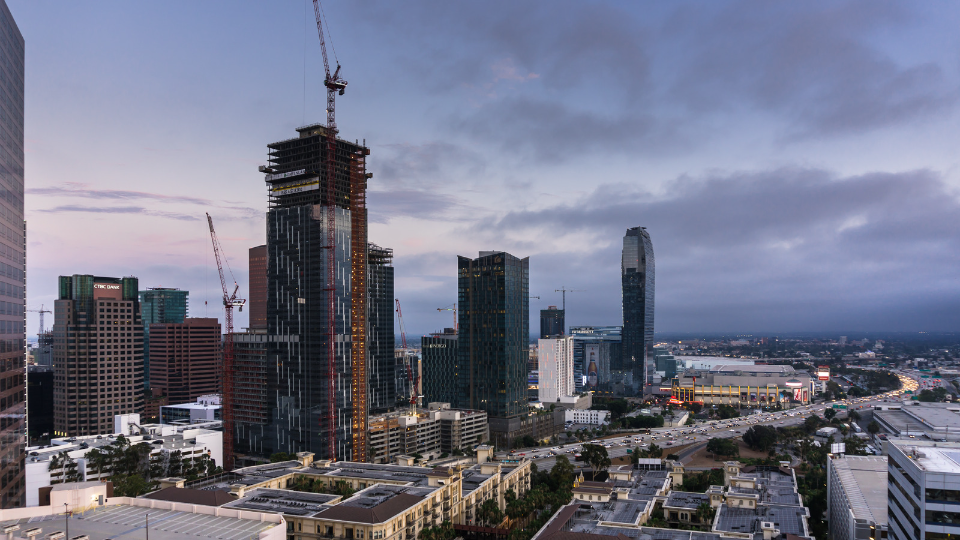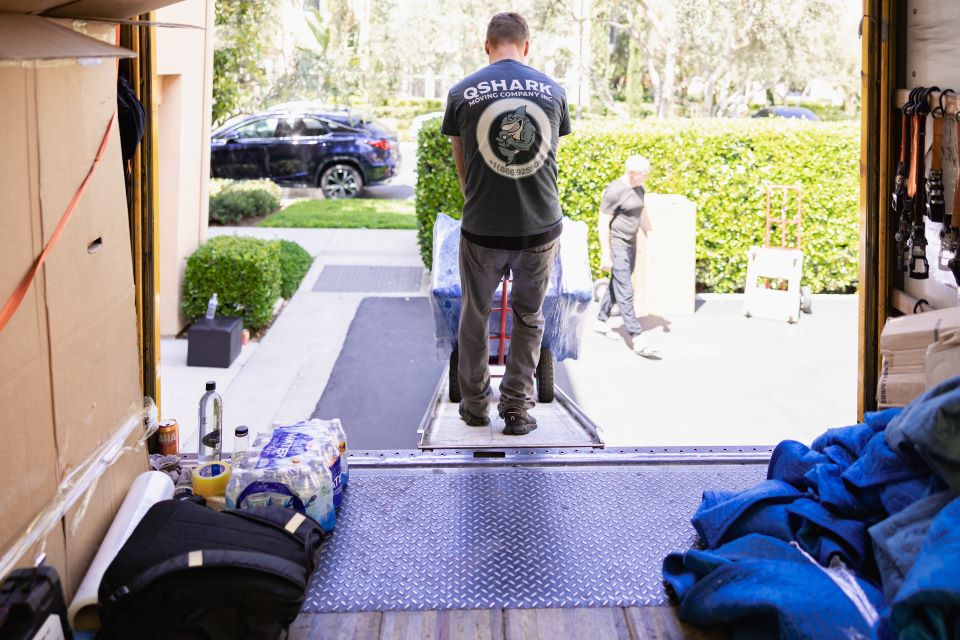How Did Los Angeles Get Its Name?

Summary: This comprehensive guide traces the fascinating history of how Los Angeles received its name. It delves into the city’s roots, beginning with its Native American origins, through the Spanish and Mexican eras, to its present-day American incarnation. Along the way, we see how the rich tapestry of cultures has shaped the city’s name and its identity. As QShark Moving Company, a local professional mover, our connection with this vibrant city is highlighted, emphasizing our commitment to its residents.
I. Introduction
Los Angeles, a bustling metropolis renowned worldwide for its sunny climate, bustling entertainment industry, and cultural diversity, carries a name that reverberates with a deep sense of history. The name ‘Los Angeles’ is far from arbitrary. It’s a testament to the city’s colorful past, layered with rich narratives from different cultures and epochs.
Understanding the origin of place names, such as Los Angeles, is more than just a historical curiosity. It’s about unraveling the story of the place, its people, and its culture. It allows us to appreciate how our past has shaped our present, which we deeply value as local professional movers at QShark Moving Company. Our work involves moving goods and appreciating the stories and histories that come with them.
Short Answer: Los Angeles got its name from the Spanish settlers who founded the city in 1781. The original name was “El Pueblo de Nuestra Señora la Reina de los Ángeles de Porciúncula,” which translates to “The Town of Our Lady the Queen of the Angels of Porciúncula.” Over time, it was shortened and anglicized to its present form, ‘Los Angeles.’
The following sections delve deeper into the historical journey of how Los Angeles came by its name. We trace its origins back to the Native American era, through the periods of Spanish and Mexican rule, up until the city was incorporated into the United States.
Here’s a glimpse of what we’re going to cover:
We invite you to join us on this journey through time, tracing the evolution of the City of Angels – a journey that is as rich and diverse as the city we, at QShark Moving Company, proudly serve.
“The history of a city’s name is the history of its people, its culture, and its transformation. To know Los Angeles is to know its name.” – QShark Moving Company, professional movers in Los Angeles.
Stay tuned for our next section – The Early History of Los Angeles.

II. Early History of Los Angeles
Before the Spanish missionaries and colonists set foot on the now Los Angeles land, it was inhabited by Native American tribes. The principal tribes were the Tongva and the Chumash.
- The Tongva, known as the ‘people of the earth,’ inhabited regions in and around Los Angeles. Their lifestyle and culture were deeply rooted in the region’s diverse landscape, from the mountains to the ocean.
- The Chumash were maritime people adept in fishing and seafaring. Their territory extended from Malibu to San Luis Obispo.
These tribes had their names for the region. For instance, the Tongva referred to the Los Angeles basin as ‘Yaa’ in their language.
First Contact with Europeans
- The first European to explore the California coast was Juan Rodriguez Cabrillo, a Portuguese explorer sailing for the Spanish crown. His expedition in 1542 marked the first contact between the Native American tribes and Europeans.
- Over time, Spanish missionaries and explorers ventured further into the territory, drastically altering the native populations’ lives. This era marked the beginning of a new chapter in the history of Los Angeles.
In the following section, we delve into the era when the Spanish influence began to shape the region, eventually leading to the naming of Los Angeles.

III. Spanish Era
The Spanish Era was crucial in shaping Los Angeles, including its naming. The region’s strategic location and fertile lands attracted Spanish missionaries and colonists, who gradually established their hold.
Mission San Gabriel Arcángel
The establishment of the Mission San Gabriel Arcángel in 1771 was a significant event in the Spanish colonization of California. Although not within the current city limits, the mission was nearby and significantly influenced the region.
Founding of Los Angeles
In 1781, 44 settlers, known as “Los Pobladores,” founded a settlement named “El Pueblo de Nuestra Señora la Reina de los Ángeles de Porciúncula”. The name, bestowed by Governor Felipe de Neve, translates to “The Town of Our Lady the Queen of the Angels of Porciúncula.”
“The long, poetic name encapsulates the religious fervor and ambition of the Spanish colonizers. It was named in honor of a tiny chapel in Italy, where St. Francis of Assisi reportedly had his vision of creating a new order.”
Choosing such a long and specific name reflected the colonists’ religious devotion and the importance on this new settlement.
Our next section will explore how the Mexican Era influenced the evolution of Los Angeles and its name.

IV. Mexican Era
The Mexican Era began in 1821 when Mexico gained independence from Spain. The power shift brought about changes in the region, impacting Los Angeles’ development and its name.
The transition from Spain to Mexico
With Mexican independence, the mission system established by the Spanish began to decline. Mexico’s secularization policies led to the redistribution of mission lands to private owners, altering the socio-economic structure of the region.
Impact on Los Angeles
During this period, Los Angeles gradually evolved from a small, remote pueblo into a booming ranching and agricultural community. Despite these changes, the settlement continued to be known by its Spanish name, although it was often abbreviated to “Los Angeles.”
Our upcoming section will examine how Los Angeles became part of the United States and how this transition impacted its name.
V. American Era
The American Era marked a pivotal point in Los Angeles’ history. The Mexican-American War ended in 1848 and made California a U.S. territory.
Mexican-American War and its Aftermath
The Mexican-American War was a significant conflict between Mexico and the United States, sparked by territorial disputes. With the Treaty of Guadalupe Hidalgo signing, Mexico ceded California and other territories to the U.S.
Incorporation of Los Angeles
In 1850 California became a state, and Los Angeles was incorporated as a municipality. The town officially adopted the anglicized version of its name, “Los Angeles.”
Our exploration into the city’s past continues with the next section, where we observe the growth and development of modern-day Los Angeles.

VI. Evolution of Los Angeles
From its beginnings as a small pueblo, Los Angeles has evolved into a sprawling metropolis rich in cultural diversity and international influence. Let’s look at how the city has grown over the years and how its name has symbolized its identity.
Growth and Development
- During the late 19th and early 20th centuries, Los Angeles experienced rapid growth. The discovery of oil, the construction of the Los Angeles Aqueduct, and the expansion of the railroad brought an economic boom and an influx of new residents.
- The establishment and growth of Hollywood in the early 20th century set Los Angeles on its path to becoming the global center of the entertainment industry.
- Over time, Los Angeles became a melting pot of different cultures, with significant populations of Latinos, African-Americans, Asians, and others contributing to its rich cultural diversity.
Influence of the Name
- The name ‘Los Angeles’ has come to symbolize more than just a geographical location. It represents a city of dreams, where creativity, innovation, and diversity thrive. It embodies the city’s spirit — dynamic, vibrant, and forward-looking.
- Over the years, the city has inspired numerous nicknames that reflect its character — ‘City of Angels,’ ‘La-La Land,’ ‘Tinseltown,’ and more. These names further reinforce the cultural identity of Los Angeles.
Our next section will focus on QShark Moving Company’s relationship with Los Angeles and how the city’s rich history and diversity are integral to our work.

VII. QShark Moving Company and Los Angeles
As a leading moving company based in Los Angeles, we at QShark feel a deep connection with the city. Our understanding of the city’s history, the origin of its name, and its evolution over the centuries helps us better serve our clients.
Connection with Los Angeles
- Our years of experience as professional movers in Los Angeles have given us a deep appreciation of the city and its residents. Each moving job is a unique story steeped in the rich tapestry of Los Angeles’ history and culture.
- The diverse cultures and histories that our clients bring with them resonate with Los Angeles’ own multicultural heritage, reflected in its name and identity.
Commitment to the City and its Residents
- Our commitment to the city goes beyond our professional services. As a local moving company, we strive to contribute positively to the community and participate in the ongoing story of Los Angeles.
- Just as the city of Los Angeles welcomes people from all walks of life, we, at QShark, are ready to assist with any moving needs, helping our clients make Los Angeles their home.
“Understanding the story behind Los Angeles’ name helps us appreciate the city’s rich heritage and diversity. As part of this city, we strive to uphold these values in our work.” – QShark Moving Company, your professional movers in Los Angeles.
VIII. Conclusion
The city’s original name, “El Pueblo de Nuestra Señora la Reina de los Ángeles de Porciúncula,” reflects the religious and aspirational spirit of the Spanish settlers who founded Los Angeles. Over the centuries, this name was simplified to its current form, ‘Los Angeles,’ while its meaning, ‘The Angels,’ symbolizes the city’s reputation as a place of opportunity and dreams.
Understanding the history behind Los Angeles’ name gives us a deeper appreciation of the city’s rich heritage and multicultural identity. As a local moving company serving the Los Angeles community, we at QShark believe that this understanding helps us better connect with our clients and the diverse narratives they bring.
To wrap up:
- Los Angeles, originally named “El Pueblo de Nuestra Señora la Reina de los Ángeles de Porciúncula,” has a deep historical and cultural significance rooted in its name.
- The evolution of Los Angeles, from a small pueblo to a vibrant metropolis is reflected in the evolution of its name.
- Understanding the origin and meaning of Los Angeles’ name enriches our appreciation of the city’s multicultural heritage and dynamic spirit.
- As a professional moving company in Los Angeles, QShark Moving Company values the city’s rich history and is committed to serving its diverse community.


